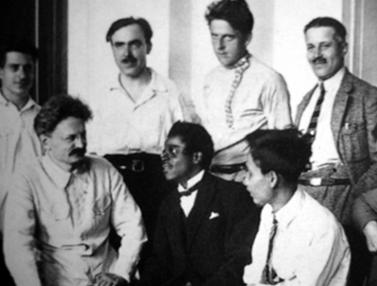Vietnam & Trotskyism
The Trotskyists and the United National Front

Simon Pirani
Reprinted from Workers Press, 17 January 1987
We have this week received further clarification of an important question of historical fact about the Vietnamese Trotskyists.
The question is: what were the Trotskyists’ relationships to the United National Front (UNF) set up by the bourgeois nationalist parties in Saigon on 16 August 1945?
The front itself, formed to take administrative power from Japan’s occupation army (who, having finally lost the imperialist war with the dropping of the atom bomb, were anxious to hand over to Vietnamese bourgeois forces rather than the British or French), lasted less than a week.
At a meeting on 22 August 1945, its leaders were given an ultimatum by the Stalinists of the Vietminh to submit to their power – which they did. (See article reprinted from Workers Press of December 20 above).
But the question of the Trotskyists’ attitude towards the UNF is important. An old Stalinist slander (originated by Ho Chi Minh in 1939), that the Trotskyists were agents of the Japanese, has been bolstered with the argument of ‘guilt by association’: the Japanese handed power to the UNF, the Trotskyists were in it, therefore they were Japanese agents.
In compiling this series, I had to work mostly from secondary sources, and the question of Trotskyist participation in the UNF, like other important details, was unclear. I felt we were right to publish anyway what we had in hand, i.e. the mountain of evidence showing that the Trotskyists were honourable revolutionaries who fought for working class power, and were subject to Stalinist repression for doing so.
Reports from both Vietnamese Trotskyist groups, sent to the International Secretariat of the Fourth International in Paris in the late 1940s, made no mention of either group participating in the UNF.
The report from the Struggle group said they proposed a united front to the Vietminh, who turned this offer down; it also said they had refused practical collaboration with the bourgeois nationalist parties.
On the other hand, accounts by bourgeois academics – Milton Sacks, Phillipe Devilliers and R. Turner – stated that the Trotskyists of the Struggle group, led by Ta Thu Thau, did participate in the UNF. Sacks and Devilliers quote no sources. Turner quotes A Modern History of Vietnam by Nguyen Phut Tan, which I have been unable to obtain. I argued, in the article in Workers Press of 20 December, that if the Trotskyists had participated in the UNF, this certainly did not ‘prove’ that they collaborated with the Japanese anyway.
Now a Vietnamese comrade with first-hand knowledge has kindly sent a copy of the manifesto issued by the UNF when it was set up on 16 August 1945.
The manifesto, which calls for resistance to French imperialism and ‘all foreign aggression’, was signed by the Vietnam Independence Party, the Vanguard Youth, a group of intellectuals, the civil servants’ federation, the Tinh Do Cu Si community (hermit Buddhists), the Hoa Hao Buddhist community and the Cao Dai religious community.
The Struggle group did not sign this manifesto, and this seems fairly conclusive proof that they did not take part in the UNF.
Only one question remains: why did academics like Devilliers believe that they did?
It is possible that he was misled by the Vietminh disinformation campaign, launched against the Trotskyists to label them ‘Japanese agents’ and justify their massacre a few weeks after the UNF’s brief appearance in history.